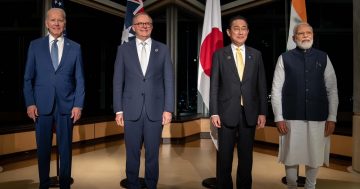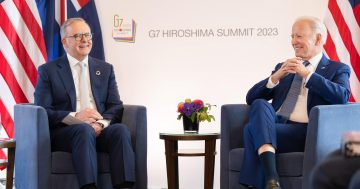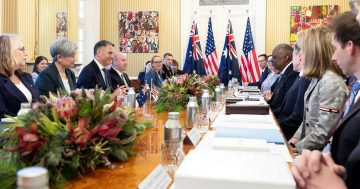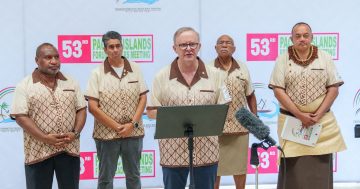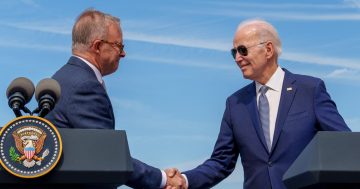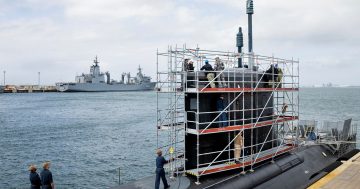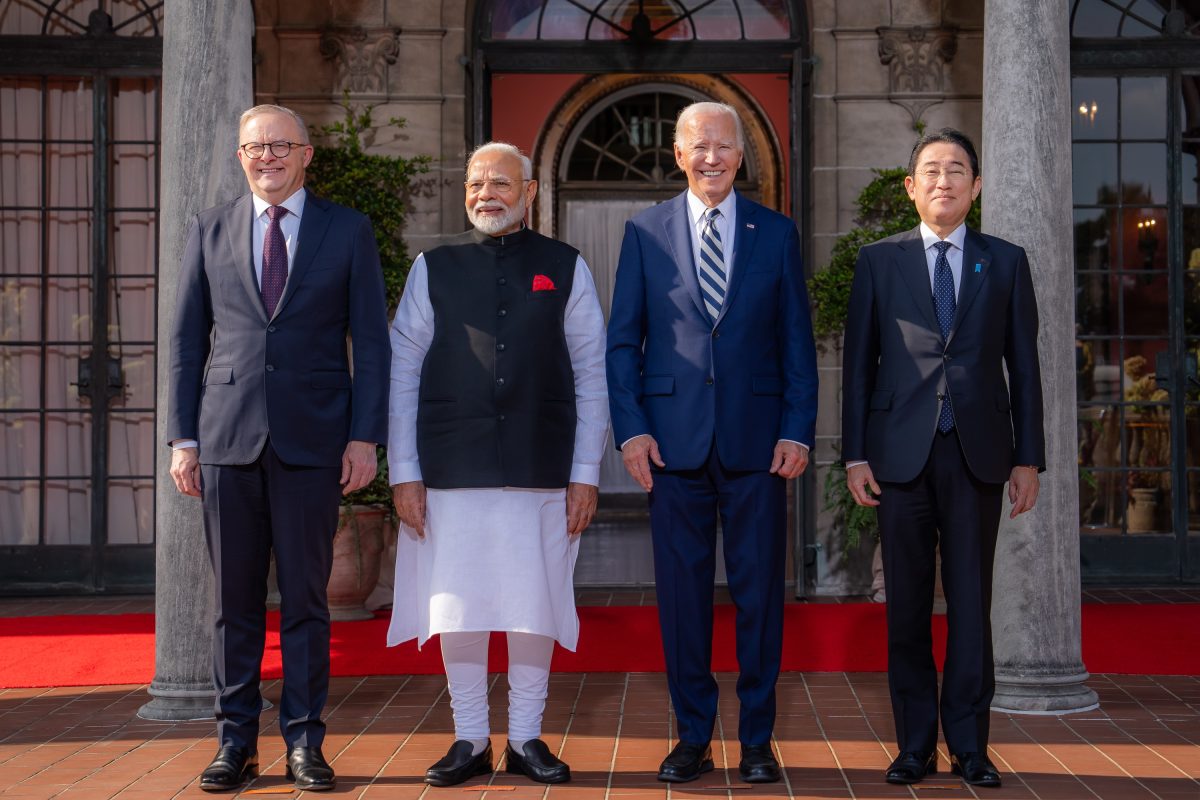
Quad leaders Prime Minister Anthony Albanese, Prime Minister Narendra Modi of India, US President Joe Biden, and Prime Minister Kishida Fumio of Japan. Photo: White House X.
The Quad alliance leaders of Australia, the United States, Japan and India, who met in Delaware over the weekend, reached a consensus on many issues, not least being that the forum is here to stay – no matter who is elected in the US in November.
“Way beyond November,” the President said before repeating those three words for emphasis.
Anthony Albanese has added his assurance that the Quad’s future is vital for democracy in the Indo-Pacific region.
“The sum of the four countries is more than any individual nation can do, and this is a really practical initiative as well,” the Prime Minister said.
“The Quad is an important body. Unlike a lot of international forums, it doesn’t have a long history, and that means it’s not defined by tradition, but it also means it’s not constrained by it.”
The PM also quipped that agreement was reached to turn the forum’s name into an acronym.
“One of the things we agreed on was that Quad stands for Quick United Assistance Delivery, and we have a range of really practical initiatives,” he said.
Beyond the all-important decisions about the group’s name and longevity, the Quad actually signed off on some important measures – quite a few of them with China in mind (not to mention North Korea).
The coast guards of all four Quad nations are about to coordinate maritime patrols like never before.
They plan to launch a first-ever Quad-at-Sea Ship Observer Mission in 2025 to improve what the group describes as “interoperability” and to advance maritime safety.
A new regional Maritime Initiative for Training in the Indo-Pacific has been agreed to.
These initiatives will allow Indo-Pacific partner nations to better “monitor and secure their waters, enforce their laws, and deter unlawful behaviour” with the help of incoming layers of advanced technology.
“As four leading maritime democracies in the Indo-Pacific, we unequivocally stand for the maintenance of peace and stability across this dynamic region, as an indispensable element of global security and prosperity,” the Quad leader’s joint statement following the meeting said.
“We strongly oppose any destabilising or unilateral actions that seek to change the status quo by force or coercion.
“We condemn recent illicit missile launches in the region that violate UN Security Council resolutions.
“We express serious concern over recent dangerous and aggressive actions in the maritime domain.
“We seek a region where no country dominates and no country is dominated – one where all countries are free from coercion, and can exercise their agency to determine their futures.
“We are united in our commitment to upholding a stable and open international system, with its strong support for human rights, the principle of freedom, the rule of law, democratic values, sovereignty and territorial integrity, and peaceful settlement of disputes and prohibition on the threat or use of force in accordance with international law, including the UN Charter.”
Cyber threats also got some high-level attention at the forum, with strengthened cooperation promised to counter the increasing security problem.
Other initiatives agreed to include the Quad Cancer Moonshot, which the leaders describe as a “groundbreaking partnership to save lives” in the Indo-Pacific region.
“Building on the Quad’s successful partnership during the COVID-19 pandemic, our collective investments to address cancer in the region, our scientific and medical capabilities, and contributions from our private and non-profit sectors, we will collaborate with partner nations to reduce the burden of cancer in the region,” they said.
“The Quad Cancer Moonshot will focus initially on combating cervical cancer – a preventable cancer that continues to claim too many lives – in the Indo-Pacific region, while laying the groundwork to address other forms of cancer as well.”
Greater cooperative efforts in humanitarian assistance, disaster relief, climate change, emerging technologies, and quality infrastructure were also promised.
But the overwhelming take-home message appears to be fixed on stability in the region.
“As leaders, we are steadfast in our conviction that international law, including respect for sovereignty and territorial integrity, and the maintenance of peace, safety, security and stability in the maritime domain, underpin the sustainable development, and prosperity of the Indo-Pacific,” they said.
“We emphasise the importance of adherence to international law, particularly as reflected in the United Nations Convention on the Law of the Sea, to address challenges to the global maritime rules-based order, including with respect to maritime claims.
“We are seriously concerned about the situation in the East and South China Seas. We continue to express our serious concern about the militarisation of disputed features, as well as coercive and intimidating manoeuvres in the South China Sea.
“We condemn the dangerous use of coast guard and maritime militia vessels, including increasing use of dangerous manoeuvres. We also oppose efforts to disrupt other countries’ offshore resource exploitation activities.
“We re-emphasise the importance of maintaining and upholding freedom of navigation and overflight, other lawful uses of the sea, and unimpeded commerce consistent with international law.”












